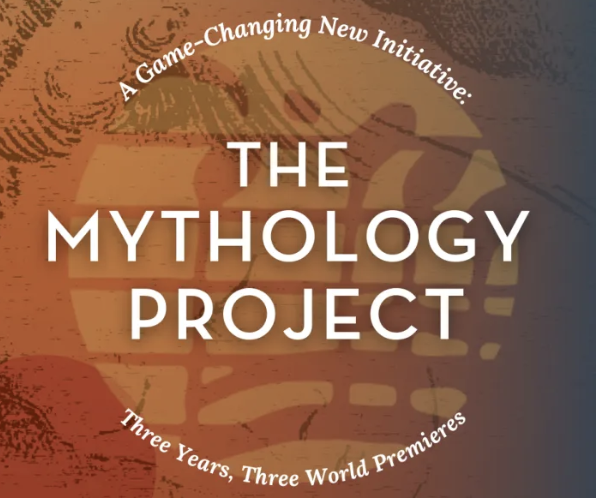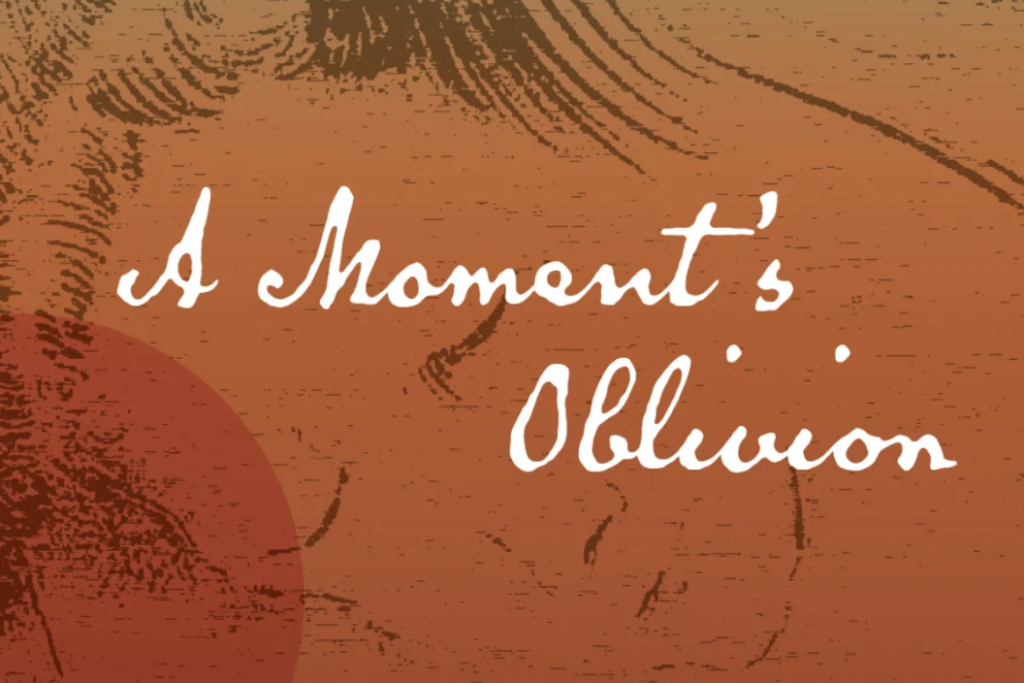By Mike Telin

“I had been spending a lot of time in Ann Arbor at my parents’ place because their health was starting to decline. And in my childhood bedroom was this very tattered book of Chinese myths that I had as a child,” the Grammy-winning tenor said on a recent Zoom call from Lisbon, Portugal.
“So I thumbed through the book and “The Loss of Memory Myth” jumped out at me. Probably because of what I had been experiencing with my parents’ decline in health and my needing to step up to take care of them. That role reversal really spoke to me.”
This weekend Les Délices will present A Moment’s Oblivion, the first instalment of “The Mythology Project,” a three-year initiative that will bring new life to the secular cantata that was popular in 17th and 18th-century France.
On Saturday at 4:00 pm at Heights Theater and Sunday at 4:00 pm at West Shore Unitarian Universalist Church, tenor Nicholas Phan, oboist Debra Nagy, violinist Shelby Yamin, violist da gamba Rebecca Landell, and harpsichordist Mark Edwards will perform Michel de Montéclair’s La Bergère & Le Dépit généreux, Marin Marais’ “Le Labyrinthe” from Livre 4ème, and François Couperin’s “Barricades mistérieuses” and “Les Langueurs tendres” from Sixième Ordre. Tickets are available online.

Phan said the myth also taps into the arc of life — you start out as a crawling baby in diapers, then you stand upright, and then, as an older person, you end up crawling again and back in diapers.
“But the catch is that the older person has lived a whole life. They’re not a child that knows nothing. And so this idea that someone younger knows better what the older person needs or wants is a bit of a fallacy. It’s not a true, full circle moment kind of thing but those aspects of the myth resonated with me.”
Phan said that he is happy with Dave Lucas’s texts. “Creating a libretto is difficult because it has to leave enough room for the composer. Sometimes it leaves too much, but I feel like he threaded the needle beautifully.”
The tenor is also excited about the music Viet Cuong has written. “He’s someone I encountered during the pandemic when I was filming the Britten Serenade with the California Symphony and they had commissioned him to write a piece. During breaks from filming they were working on his music, which I thought was really cool. So when we were thinking about composers who might be a good fit, he was one of the first people who came to mind.”
Another aspect of the myth that Phan found appealing was its universal story. “It’s interesting that we are living in an age where DEI is under attack. I feel that our job as artists is to bring people from disparate backgrounds and identities together, and to help everybody find some common ground. What is important about this myth is that its story is something that appeals to all of humanity, not just to Chinese people.”
A Moment’s Oblivion will also include two special performances with conversations at Cleveland’s VA Hospital: one for Medical Professionals & Providers with a focus on Bioethics and another for Family Caregivers & Memory Care Patients with a conversation facilitated by VA medical staff.
“I’m looking forward to these sessions. Having encountered many caregivers over the last couple of years for both of my parents as their health declined and they passed, that is intense and very specialized, heroic work. They’re really angels in my view.”
Nicholas Phan — Viet Cuong — David Lucas
I caught up with composer Viet Cuong via Zoom and began our conversation by asking him if he has worked with Nicholas Phan in the past.
Viet Cuong: This is my first time working with Nick and I’m excited to hear him sing my music. I was listening to a lot of his recordings as I was writing this piece and I just love his voice.
Mike Telin: You’ve written for voice on a number of occasions.
VC: Yes, but this is my first song cycle for tenor.
MT: What are the challenges of writing for the voice?
VC: Setting the text, because your music is sort of in service to it, which I really love. Sometimes you have a certain melodic or rhythmic idea that you think would work for the music, but then the words themselves don’t really work with that melody or rhythm. So you have to let the words be the driving force.
And when you’re writing for a very specific voice, there are all of the idiosyncrasies that each performer brings. For example there were places where I wanted the melody to go a certain way but it was a little too low, so I changed it and it ended up being better.
MT: With this project there was a double challenge — not only are you writing for a very specific voice, you also writing for period instruments.
VC: I mentioned the vocal line that was a little too low. Usually in that instance you just transpose the entire song up a step. Except that transposing it up a step made it too high to play on a Baroque oboe. So there was a lot of balancing of these different things.
I’ve never written for Baroque oboe, Baroque violin or viola da gamba, and I had only written for harpsichord once before. It is a very different animal from the piano because when you hold down a key, it sustains somewhat, but when you lift it, the sound stops.
MT: You had a good time writing it?
VC: I did. It was wonderful to set David Lucas’s libretto. Whenever I write for voice I just sit at the piano and sort of improvise and sing the words as I’m playing chords just to get a feel for it. And here it was like the words set themselves and in a really satisfying way.
I rewrote each one several times. It was interesting, because when you look at the first versions they’re quite different from the later ones. I think that’s a testament to how well the libretto is written — it can be set multiple ways and work with different melodies, different rhythms, and different phrasing. So I kind of got to pick what I think are the best iterations of each song.
MT: Were you previously aware of the myth?
VC: No, but I was taken by it. I think watching parents, older family members, or friends change as they grow older is a universal experience. My grandmother lived to be 96 years old, but in the last several years of her life she had dementia and didn’t really remember who most people were. I remember when I was a teenager we went to visit her and she looked at my mom and asked ‘Who is this person in my house?’ I remember that being very painful, especially for my mom. But like I said, it’s something that many people go through.
On the flip side, I was thinking about how this myth’s story is sort of saying, ‘be careful what you wish for.’ Changing the natural process of things perhaps isn’t the solution.
In some ways setting the father’s aria was the hardest because I wanted to capture his sense of regret. At the end of the story he’s pleading — “let me forget.” But in the son’s aria, he’s pleading for his father not to forget — so it’s very powerful.
Published on ClevelandClassical.com February 18, 2025.
Click here for a printable copy of this article




